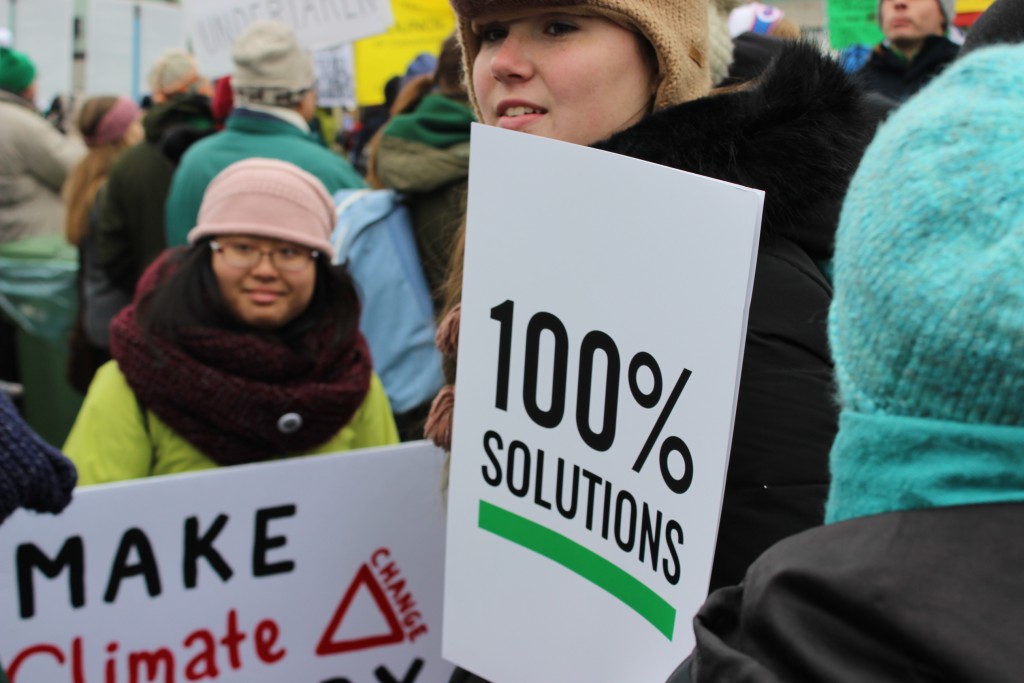rabble is expanding our Parliamentary Bureau and we need your help! Support us on Patreon today!
The UN Climate Conference in Paris (COP21) will not produce a magic fix to curb the emission of greenhouse gases caused by burning fossil fuels. Given the number of countries and competing interests involved, that is not a surprise. The world’s political leaders have been negotiating since the Earth Summit in Rio de Janiero in 1992 yet carbon emissions have continued to rise.
Cooperating fully
On the other hand, the Paris talks have shown an improvement over previous negotiating sessions. The question is whether human societies can find ways to cooperate fully and quickly enough to stave off a disaster which is already being felt in droughts, wild fires, increasingly violent storms, melting ice caps and rising sea levels. The world’s climate scientists have been telling us with growing urgency that we are on track for temperature increases of four or more degrees Celsius by the end of this century, and that would produce catastrophic results.
Leaders accept science
One promising sign is that most political leaders now accept climate science and know they have to act. For example, China was previously determined to grow its economy on the basis of carbon consumption no matter what the environmental costs. However, choking smog caused by emissions and the startling rise of coastal sea levels have sobered the Chinese. In just a few years they have become the world’s leader in a various green energy technologies, including wind and solar.
Barack Obama also understands climate change and wants to do something about it. For years, the Americans were stuck with leaders such as George W. Bush who showed little or no interest in the issue. For the most part, Republicans said either that climate change did not exist, or if it did that it was not caused by human activity. The subsidies to big coal and big oil continued unabated in the U.S. Unfortunately, the Republicans are now warning that Congress may negate any promises that Obama makes in Paris. The American people must not allow that to happen.
Canada’s record
Canada has been a leader both in pledging to lower greenhouse gas emissions and in breaking those promises. This began with Jean Chretien’s government blithely promising at Kyoto in 1997 that it would reduce emissions but then putting no plan in place to do so. The Liberals were replaced by Stephen Harper who was at first a climate change denier. Later he switched to promising environmental regulations that never materialized.
Canada’s new federal government says that has all changed now. Rhetorically, that is promising but a vigilant citizenry must hold political leaders to their word. Tens of thousands of Canadians did just that by marching on Sunday, November 29 to call for a carbon free future.
Deniers discredited
Another hopeful sign is that the cadre of climate change deniers has been discredited and is shrinking. Be vigilant, however. The state of New York is investigating Exxon Mobil for allegedly funding groups that deny climate change even as the company’s in house scientists warn executives about the consequences of those changes.
Moral and ethical sphere
A final sign of hope has the debate moving beyond the technical to the moral and ethical sphere. Much of the credit must go to Pope Francis who produced a climate change encyclical called Laudato Si in June 2015 in which he accepts climate science and thus further inhibits the deniers.
The pope says that climate change affects the world’s poor disproportionately and much of the problem rests with the consumerism of the affluent. He says also that changes can and must occur at both personal and political levels. There is at least a chance that religious faith may influence behaviour in a way that cold, hard facts have failed to do.
A shorter version of this piece appeared as a United Church Observer blog on December 9, 2015.
rabble is expanding our Parliamentary Bureau and we need your help! Support us on Patreon today!



